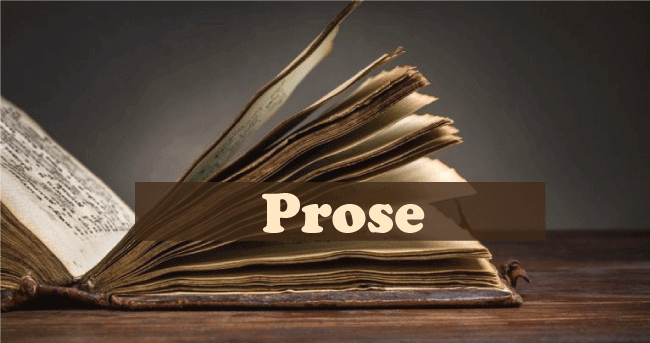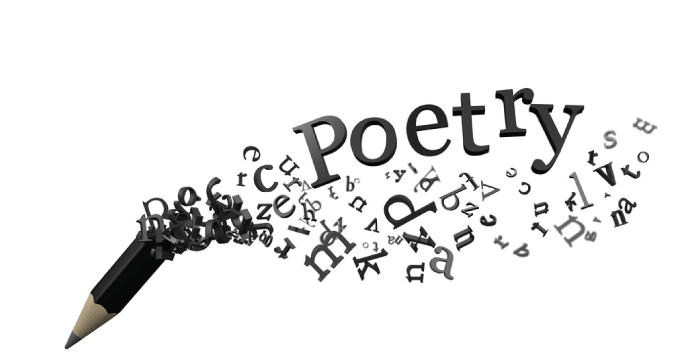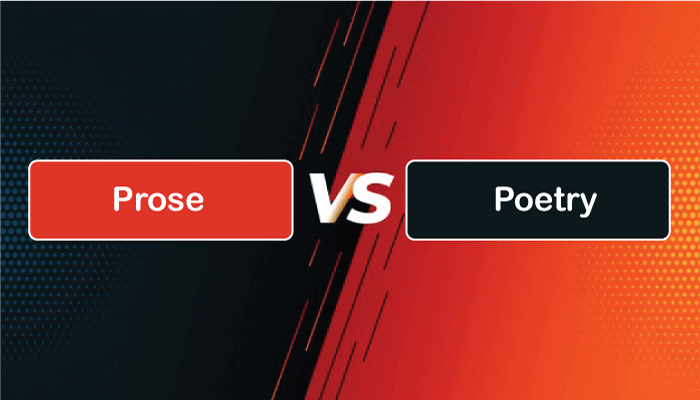Difference Between Prose and PoetryCreative writing is referred to as literature, especially when it is of great and enduring worth. It is recognized for how the message is conveyed or presented and its content. Poetry and prose are the two most popular types of literature; prose is written work that consists of sentences and paragraphs but without any metrical pattern. In contrast, poetry is a literary genre centered on a specific pattern that produces a rhyme. 
There are sentences and paragraphs in prose, whereas lines and stanzas are found in poetry. This is the fundamental distinction between the two types of writing. Also, while prose writing is expected, poetry has a unique style. While prose may be found in newspaper articles, blogs, and short novels, poetry expresses something unique and beautiful. The following distinctions can provide you with further details regarding this topic. Meaning of Prose
Prose is a typical writing in literature that includes elements like characters, story, mood, topic, point of view, place, etc., making it stand out as a particular language dialect. It is composed of grammatical sentences that make up a paragraph. Without a metrical structure, it might also contain conversation and occasionally be accompanied by pictures. Prose can be heroic, alliterative, rural, polyphonic, nonfictional, prose poetry, etc. For creative writing, prose is used in genres including biography, autobiography, memoir, essay, short story, fairy tale, article, book, blog, and more. Meaning of Poetry
Poetry inspires a complete sense of imagination via acceptable language, carefully chosen words, and an arrangement that creates a suitable pattern and rhythm (cadence of the poem). Poetry uses a creative method of expression, such as the melodic intonation of stressed (long sounding) and unstressed (short sounding) syllables, to convey to the audience the emotions, moments, ideas, experiences, sentiments, and thoughts of the poet. Poetry's structural elements include lines, couplets, strophes, and stanzas. Understanding how these two are written can help you recall their differences. For example, whereas prose is written, poetry has aesthetic qualities and hence a unique writing pattern. Moreover, prose is a type of writing that uses a narrative structure to express a message or meaning broadly. On the other hand, poems have a particular literary style that includes construction, rhyme, and rhythm. Moreover, poetry can vary in size depending on the line length and the poet's goal, whereas prose appears as large blocks of text. Critical Distinctions Between Poetry and ProseThe following factors make it easy to distinguish between poetry and prose:
Poetry V/S Prose
Prose and Poetry frequently ask questionsQuestion 1: What is a summary of prose and poetry? Answer: Novels, short stories, collections of short stories, and scripts are all considered prose. The vocabulary used in this type of writing is similar to that used in everyday speech. Song lyrics, different types of poetry, and dramatic dialogue with poetic components like iambic pentameter are all examples of poetry. Question 2: Prose and poetry both have different purposes. Answer: Prose appears as long paragraphs of text. Poetry is often used as a creative approach to communicate something extraordinary. Poetry typically uses more decorative or expressive language, and comparisons, rhyme, and rhythm all help to create a unique sound and feel. Question 3: What do prose and poetry have in common? Answer: In some way, all literature is creative writing. Both prose and poetry are literary genres that make a point for the reader, and both need some skill. Moreover, descriptive language is used as an academic strategy in prose and poetry.
Next TopicDifference Between
|
 For Videos Join Our Youtube Channel: Join Now
For Videos Join Our Youtube Channel: Join Now
Feedback
- Send your Feedback to [email protected]
Help Others, Please Share









